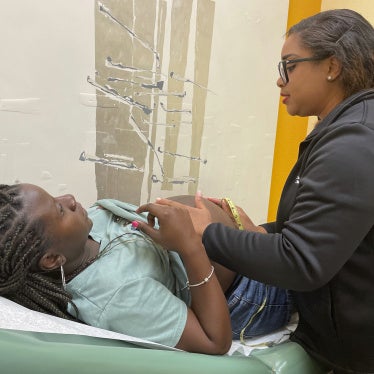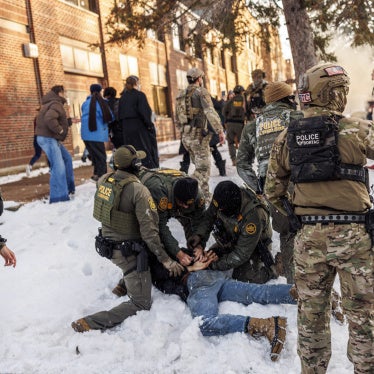Colombian President Alvaro Uribe has presented a bill to his Congress that would allow paramilitary members who have committed atrocities to skip prison for a fee. Among them are men the United States has identified as terrorists for their willingness to massacre Colombian civilians.
Washington's response should be unequivocal. If Colombia is serious about human rights and wants to continue receiving millions in aid, it cannot allow known criminals to escape justice by, in effect, writing a check.
Currently, Colombia receives the third-largest amount of U.S. military aid, after Israel and Egypt, and is slated to receive more than $700 million in 2004.
This is how Colombia's peace commissioner described the bill in an interview: "Rather than serving time in a prison, there are alternative sentences, and the individuals will be allowed to pay reparations."
The size of these "reparations" has not been determined. But many suspect it will be mere pocket change for paramilitaries leaders, many of whom are known to have accumulated vast riches through criminal acts.
Not only are the men who would benefit among the most ruthless killers in the world, but Colombian and American authorities agree that paramilitary leaders are often indistinguishable from drug traffickers. Instead of using drug profits to bankroll lavish lifestyles, they use them to fuel war.
Colombian intelligence sources estimate that paramilitaries control 40% of the country's cocaine exports. They have attacked and killed Colombian prosecutors and police officers as well as presidential candidates, Congress members and mayors.
In September 2002, the U.S. sought the extradition of paramilitary chieftain Carlos Castano -- who would be eligible for this program --and two others for importing cocaine into the U.S.
Castano's record is instructive of the crimes at stake. As of this year, Colombia's judiciary had sentenced him to 102 years in prison for massacres, assassinations and torture. But he has never served a day behind bars.
One conviction was for organizing a 1997 massacre in the hamlet of Mapiripan. At dawn, his paramilitary group rounded up locals and took them to a slaughterhouse. The armed group bound and tortured the captives, then slit their throats. The first person killed was hung from a meat hook. At least two bodies were later found decapitated. More than 30 others perished.
Far from denying a role, Castano claimed responsibility and promised "many more Mapiripans" in the future. Mapiripan is just one of the reasons the U.S. State Department put Castano's paramilitary on the list of foreign terrorist organizations.
The prospect of checkbook impunity evokes disturbing memories. In 1984, Colombia's most brutal drug traffickers, led by Pablo Escobar, offered to turn over their billion-dollar assets to Colombia in exchange for immunity from prosecution and extradition to the U.S. The deal fell through after public outcry.
This deal would be far worse. It would amount to letting crimes against humanity and drug trafficking go unpunished if the perpetrators, in effect, wrote a check.
There are powerful practical arguments against checkbook impunity. Impunity does not promote peace. It erodes the rule of law and encourages further violence. In Colombia, the history is stark.
The Castano family entered a similar arrangement in 1992, agreeing to bankroll the transition of a small, murderous guerrilla group to peaceful pursuits. Through a family-run "charity," the Castanos funneled million of dollars worth of land and cash to the former guerrillas to set up small businesses, schools and training programs.
Where did the money come from? Before going legit, Fidel, the eldest Castano brother, was a Medellin Cartel heavy.
As a strategy for peace, the arrangement was an utter failure. Only two years after the guerrillas surrendered, many of them turned up as Carlos Castano's fighters. By the 1990s, political violence had reached unprecedented levels. In 2001, prosecutors charged the family "charity" with financing paramilitaries.
Atrocities should mean prison. If Castano is extradited, U.S. prosecutors should not ignore his human rights crimes. There should be no offer to let him testify against his trafficker colleagues, then vanish into a witness protection program.
If paramilitaries fail to agree to the government's terms, the Colombian armed forces -- which the U.S. has spent more than $2 billion to remake -- should track them down and the government should bring them to justice.
To do otherwise only means that Colombia's war will yet again reemerge, more devastating than before.







